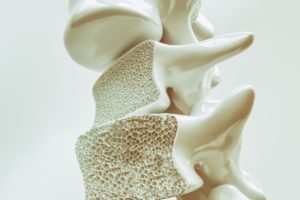 There may be a new treatment method for osteoporosis in the works. Researchers at Strathclyde University will use volunteers with paralyzed limbs to test their new treatment. Although osteoporosis can affect all people, it affects those with paralysis more so as they are unable to move.
There may be a new treatment method for osteoporosis in the works. Researchers at Strathclyde University will use volunteers with paralyzed limbs to test their new treatment. Although osteoporosis can affect all people, it affects those with paralysis more so as they are unable to move.
It is known that physical activity can help protect bones from osteoporosis. In those who cannot partake in physical activity, bones can become weaker, resulting in a higher risk of osteoporosis.
Advertisement
The new treatment method involves shaking the paralyzed limbs in an attempt to reverse lost bone. The “nanokicking” technique could provide benefits beyond treating spinal injuries.
Broken bones heal with the help of stem cells. When a bone breaks, it signals the stem cells to start creating new bone. That signal comes in the form of tiny vibrations.
A team of researchers already successfully replicated these vibrations in a laboratory by taking human stem cells and vibrating them precisely on a nanoscale, which is where the term nanokicking got its name.
Due to the success of the laboratory studies, there is now funding to move on to human trials. Professor Stuart Reid received a grant to be used over the course of two years to test nanoscale vibrations in patients with spinal injuries. Fifteen volunteers with spinal injuries will receive the treatment in hopes of reversing osteoporosis.
Advertisement
If successful, nanokicking could be a breakthrough treatment for osteoporosis. Furthermore, nanokicking could also help astronauts who spend time in space and anti-gravity for prolonged periods, as they suffer from bone density loss.
As nanokicking continues to be studied, to reduce your risk of osteoporosis, it’s essential that you engage in weight-bearing exercises. They have been shown to help strengthen bones.
Also read:
- Can osteoporosis be reversed? 12 natural ways to treat osteoporosis
- Osteoporosis exercises and safety tips
- 15 bone strengthening exercises for strong bones
